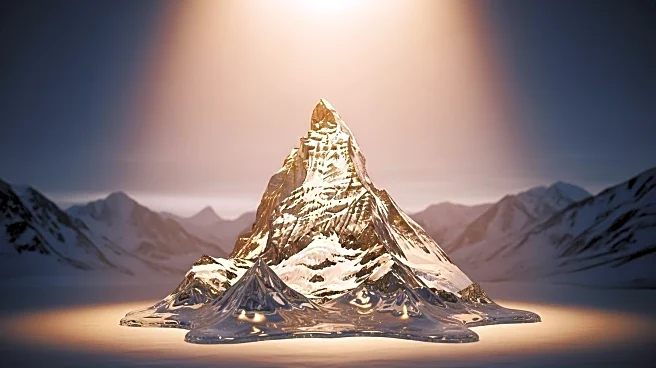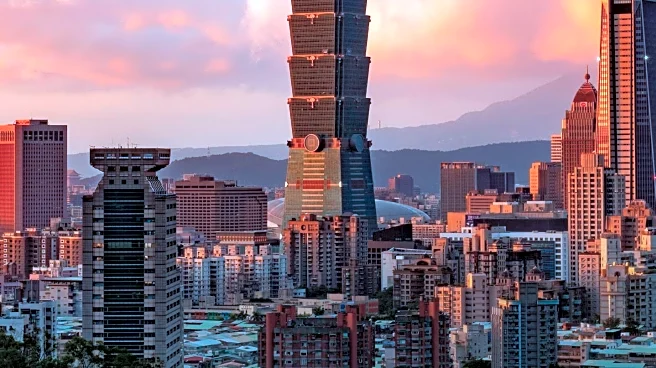What is the story about?
What's Happening?
Switzerland's glaciers have experienced a significant reduction in volume, shrinking by 3% this year, marking the fourth-largest annual decline on record. This reduction is attributed to global warming, as reported by Swiss glaciologists. Over the past decade, the ice mass in Switzerland has decreased by one-quarter. The Swiss glacier monitoring group GLAMOS and the Swiss Academy of Sciences highlighted that a winter with little snow followed by heat waves in June, the second-warmest on record, contributed to the accelerated melting. The retreat of glaciers is impacting Switzerland's landscape, causing instability in mountainous regions.
Why It's Important?
The shrinkage of Swiss glaciers has broader implications for various sectors, including hydropower, tourism, and agriculture, as these glaciers are crucial for water resources in Europe. The loss of glaciers also poses risks to infrastructure and communities due to shifting landscapes. The situation underscores the urgent need for addressing climate change, as the continued retreat of glaciers could lead to significant environmental and economic challenges. The findings emphasize the impact of human-induced global warming and the necessity for global efforts to mitigate climate change.















